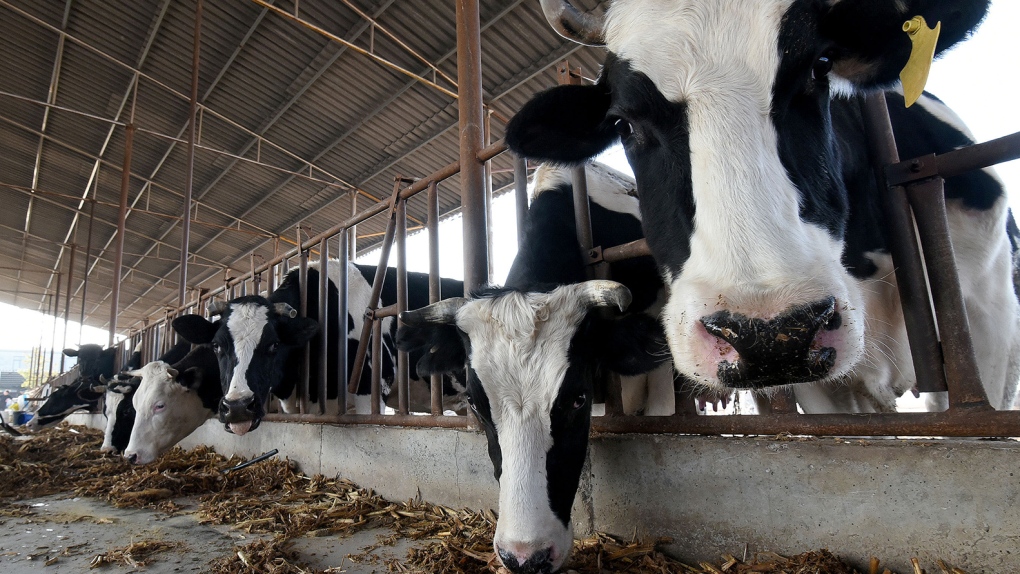
Flatulent cows and pigs will face a carbon tax in Denmark, a world first
CTV
Denmark will tax livestock farmers for the greenhouse gases emitted by their cows, sheep and pigs from 2030, the first country in the world to do so as it targets a major source of methane emissions, one of the most potent gases contributing to global warming.
Denmark will tax livestock farmers for the greenhouse gases emitted by their cows, sheep and pigs from 2030, the first country in the world to do so as it targets a major source of methane emissions, one of the most potent gases contributing to global warming.
The aim is to reduce Danish greenhouse gas emissions by 70 per cent from 1990 levels by 2030, said Taxation Minister Jeppe Bruus.
As of 2030, Danish livestock farmers will be taxed 300 kroner (US$43) per ton of carbon dioxide equivalent in 2030. The tax will increase to 750 kroner (US$108) by 2035. However, because of an income tax deduction of 60 per cent, the actual cost per ton will start at 120 kroner (US$17.3) and increase to 300 kroner by 2035.
Although carbon dioxide typically gets more attention for its role in climate change, methane traps about 87 times more heat on a 20-year timescale, according to the U.S. National Oceanic and Atmospheric Administration.
Levels of methane, which is emitted from sources including landfills, oil and natural gas systems and livestock, have increased particularly quickly since 2020. Livestock account for about 32 per cent of human-caused methane emissions, says the UN Environment Program.
“We will take a big step closer in becoming climate neutral in 2045,” Bruus said, adding Denmark “will be the first country in the world to introduce a real CO2 tax on agriculture” and hoped other countries would follow suit.
New Zealand had passed a similar law due to take effect in 2025. However, the legislation was removed from the statute book on Wednesday after hefty criticism from farmers and a change of government at the 2023 election from a center-left ruling bloc to a center-right one. New Zealand said it would exclude agriculture from its emissions trading scheme in favor of exploring other ways to reduce methane.





















 Run 3 Space | Play Space Running Game
Run 3 Space | Play Space Running Game Traffic Jam 3D | Online Racing Game
Traffic Jam 3D | Online Racing Game Duck Hunt | Play Old Classic Game
Duck Hunt | Play Old Classic Game